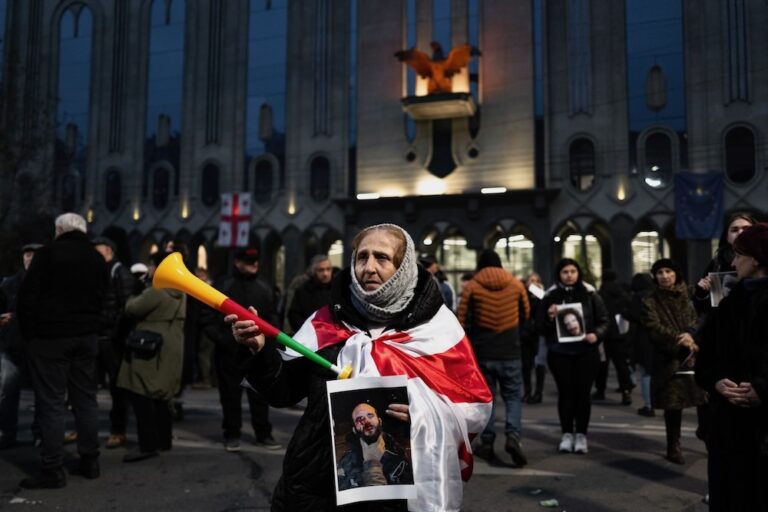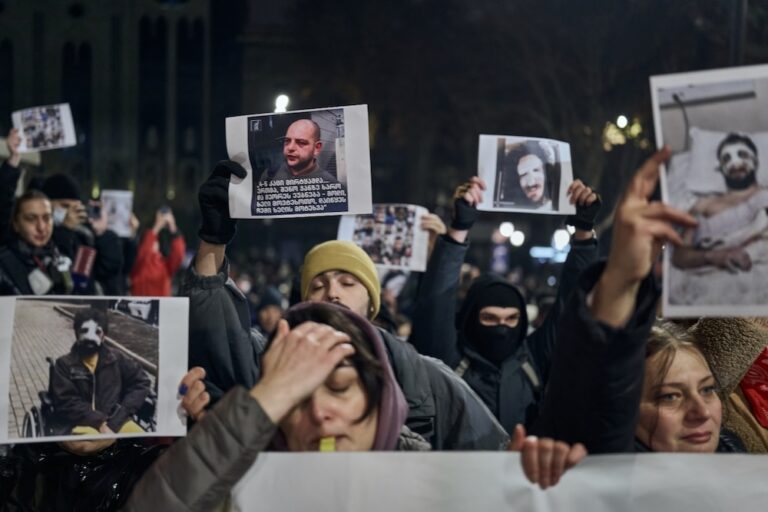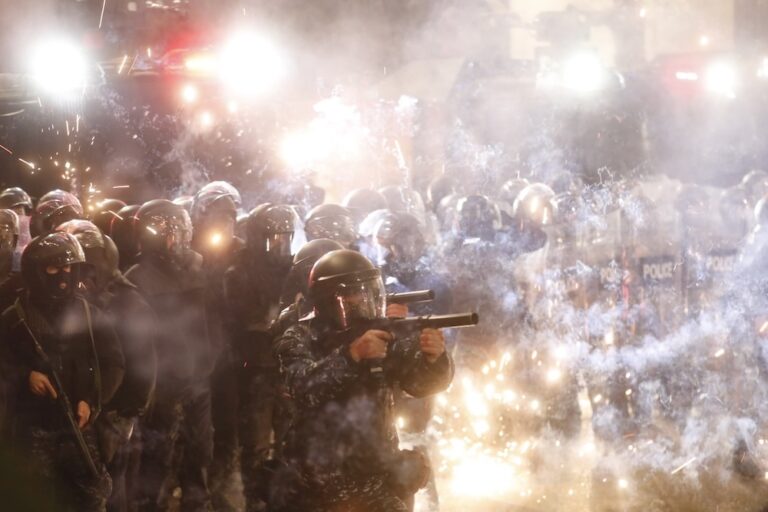In a recent joint statement, over a dozen news outlets and 20 Georgian media freedom and human rights groups said the bill "carries a risk of unreasonably restricting freedom of expression and stifling criticism."
This statement was originally published on freemedia.at on 30 January 2015.
The International Press Institute (IPI) today called on Georgia’s Ministry of Internal Affairs to drop a proposed, vaguely worded bill that would criminalise “strife-inciting calls”.
In a joint statement issued Monday, over a dozen news outlets and 20 Georgian media freedom and human rights groups said the bill “carries a risk of unreasonably restricting freedom of expression and stifling criticism”.
The statement criticised ambiguous language in the ministry-drafted bill, which would punish “public calls for violent actions, made verbally, in written or through other forms of expression and aimed to cause hostility or discord between racial, religious, national, regional, ethnic, social, linguistic or/and other groups” with two to five years’ imprisonment.
Signers expressed doubts as to the ministry’s intentions, commenting that the proposal “is not aimed at protecting discriminated minority groups but instead limiting the freedom of expression and strengthening the dominant social and moral discourse”.
Natia Koberidze, chair of IPI’s Georgian National Committee, said the proposal, if adopted, had a “very dangerous” potential to limit free speech. “This is the first attempt of the Georgian government to impose a criminal charge for expression,” she said. “It could be used by the government to control any form of criticism, everywhere.”
IPI joined with its Georgian National Committee in urging the ministry to withdraw the proposal.
“The vague nature of what this bill criminalises, coupled with the possibility of years-long imprisonment, carries a tremendous potential for misuse, and could have a severe chilling effect on journalists’ ability to inform the public on matters of public interest,” IPI Director of Advocacy and Communications Steven M. Ellis said. “We urge the ministry to withdraw this bill and to ensure that any proposed legislation that could restrict free expression is narrowly drafted to prevent calls inciting violence and contains safeguards protecting the right to share and receive information in the public interest.”
The bill was submitted to Parliament last week, but it has yet to be debated. The proposal came after the Georgian Orthodox Church, in a Jan. 17 statement released in the wake of the Charlie Hebdo massacre in Paris, called on the state to limit free expression to protect believers against “insult of religious feelings”.
Georgia has seen a number of similar moves in recent years. Lawmakers in 2014 reportedly amended Georgia’s criminal procedure code to criminalise “incitement towards violation of human equality”. Another proposed amendment would have made “insult of religious feelings” an administrative offence, but the measure reportedly failed last year.


